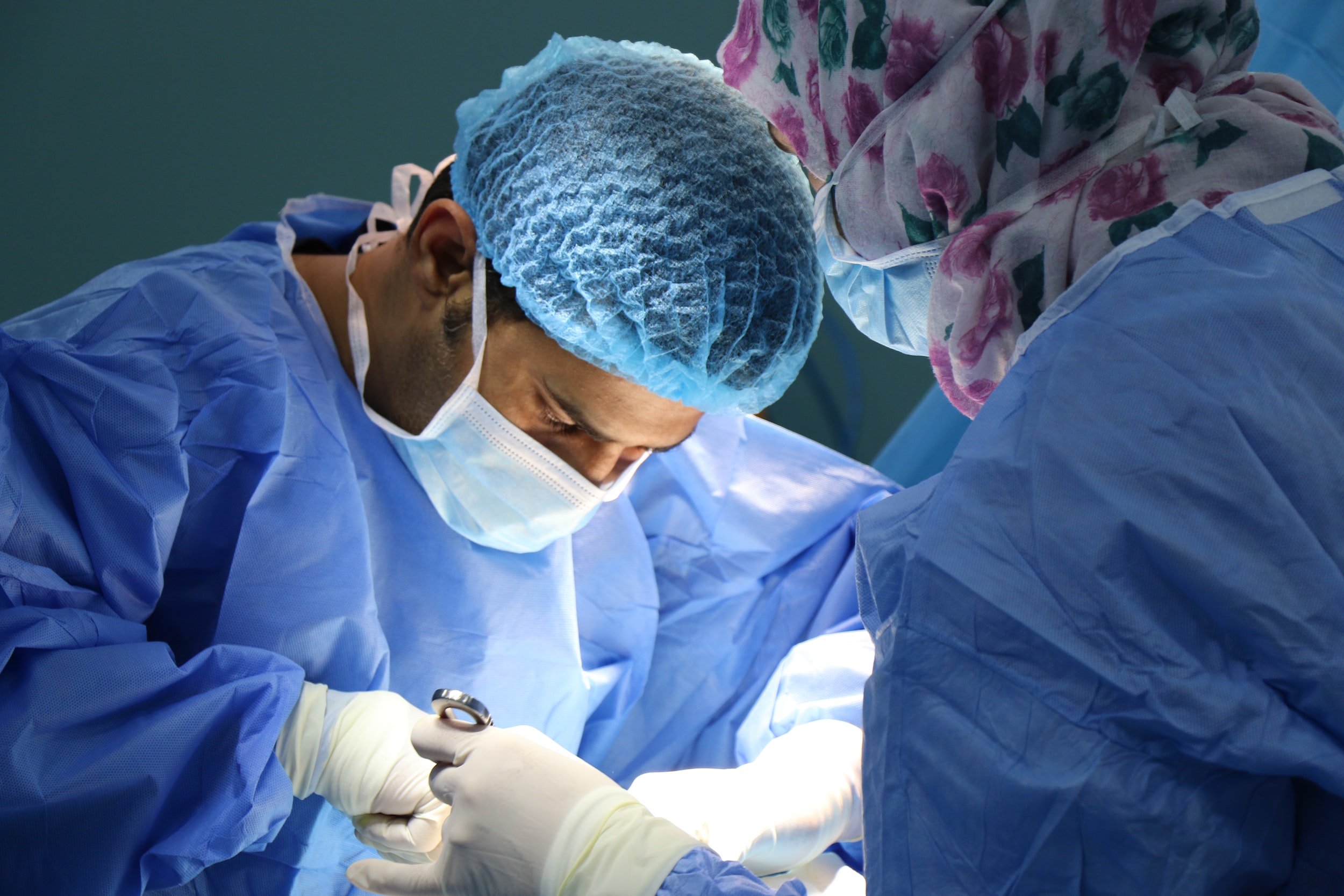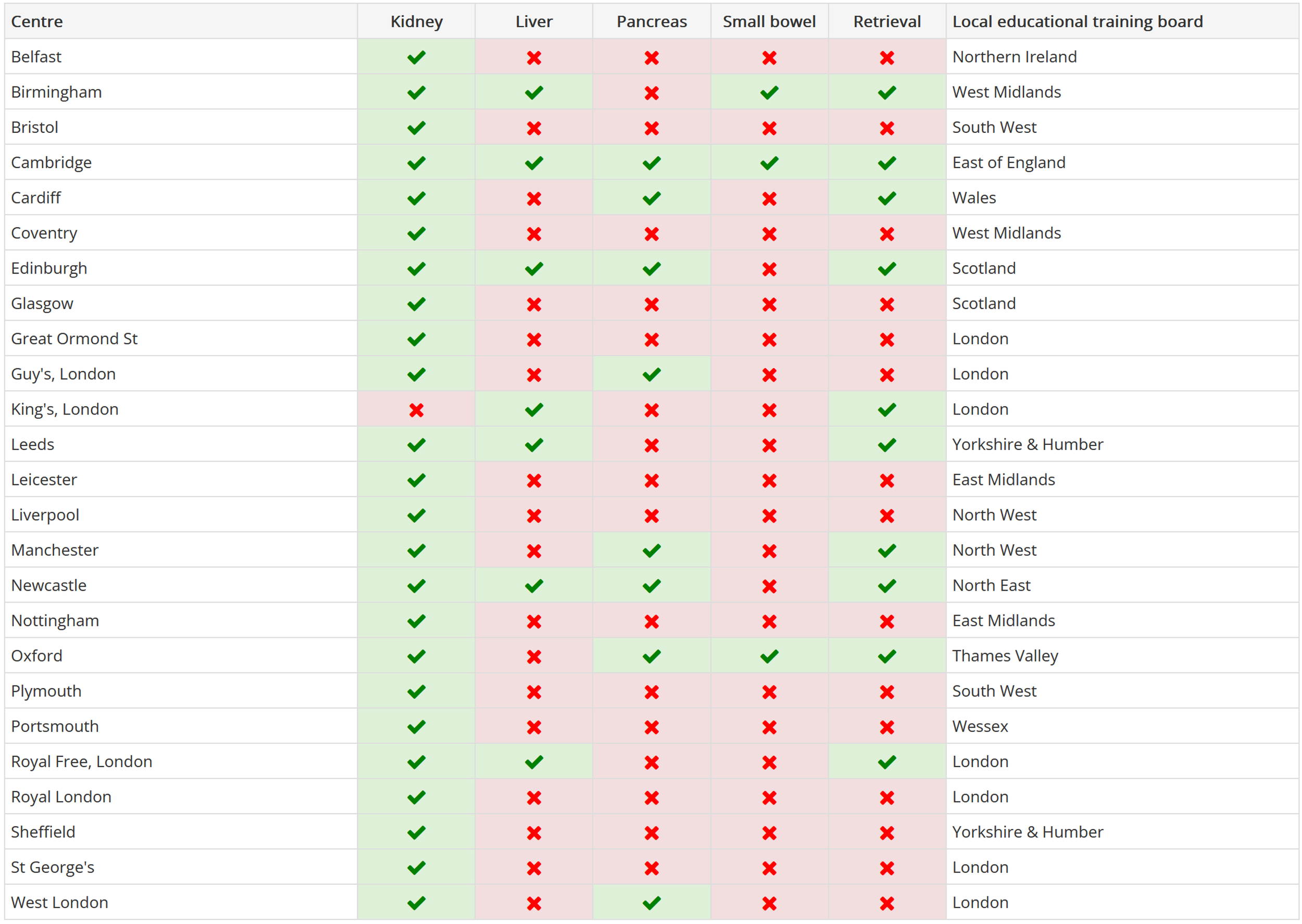
Transplant Training in the UK
Background
Historically, transplant surgeons have come to the speciality from backgrounds in General Surgery, Vascular Surgery and Urology. Recent changes in surgical training have meant that the predominant route into transplant surgery is now via the General Surgery curriculum, with specific exit exams in transplantation.
The current ISCP curriculums for both Vascular Surgery and Urology contain no competencies pertaining to transplantation, although some trainees in these specialities may rotate through a transplant unit as part of their training.
Career pathway
Surgical trainees interested in Transplant Surgery would be expected to follow a career pathway as follows:
Complete Core Surgical training (CT1 and CT2), ideally with a placement on a transplant unit during this rotation
Six years of General Surgery specialty training (ST3 to ST8).
Of note, this will result in a Certificate of Completion of Training (CCT) in General Surgery, rather than transplant surgery, although a specific exit exam in transplant is taken.
London Deanery offers a Renal Transplant specific General Surgery training program, overseen by a Transplant Surgeon as Training Program Director (TPD)
During specialty training, trainees have to gain competence to Consultant level in elective and emergency General Surgery and Transplant Surgery.
Typically this means the first four years training might be structured as follows: 2 years of Gastrointestinal Surgery, 6 months of Vascular Surgery, and 18 months Transplant surgery. This would, of course, vary by trainee and by region.
The final two years training would focus on developing the trainee’s transplant interest but must continue to include exposure to elective and emergency general surgery.
Transplant competencies
The training opportunities available vary widely across the country depending on the services offered by particular transplant centres (see below). However, the specific transplant competencies from ISCP expected by CCT for all transplant trainees are as follows:
Provide access to renal dialysis for most patients with renal failure
Ability to retrieve abdominal organs for transplantation
Ability to assess patients for kidney transplantation and manage their care
Perform deceased donor renal transplantation, including regrafts
As such, it is not expected that trainees would be competent to perform live donor nephrectomy, pancreas transplantation or liver transplantation at the completion of training. It is likely that the majority of trainees would have to undertake post-CCT fellowships to gain competence in these areas.
Organ retrieval training
Organ retrieval is currently a part of the transplant surgical curriculum, and experience is required for CCT. Those trainees who are training in a centre that does not offer experience in multi-organ retrieval will need to spend some time out of programme in a designated retrieval centre to gain the necessary competencies for CCT.
Retrieval competency is governed by NHSBT. In order to obtain competency to lead a multi-organ retrieval team (as part of the National Organ Retrieval service), you will have to provide evidence that you have participated in the NHSBT organ retrieval workshop and e-learning module and have retrieved 10 of each abdominal organ (kidney, liver and pancreas) (see the guidance document for more information). Therefore, we recommend that all trainees record their retrievals along with the ODT donor number to aid validation.
Academic training
Transplant surgery has always had a strong academic basis, and as such there are a number of opportunities to complete a higher research degree, and, potentially, pursue a career in academic surgery. A number of the UK transplant units have positions for academic clinical fellows (ACFs) and academic clinical lecturers (ACLs). Further general information on academic training is available from the NIHR.
Opportunities by centre
Below is a summary of the training opportunities available in each transplant centre in the UK. (click to expand)


